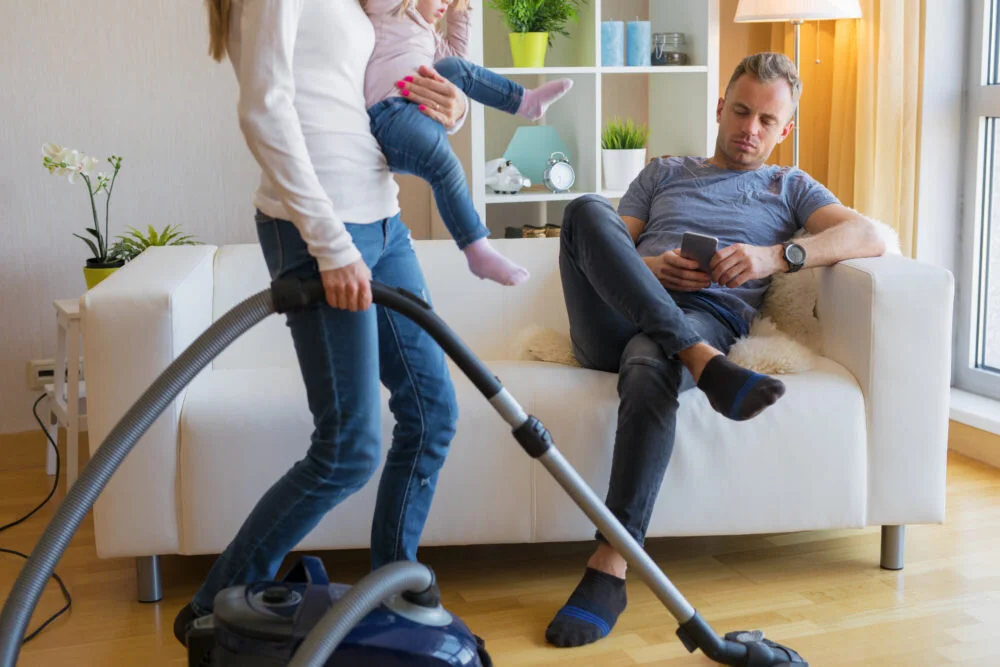On Friday the 10th July, “Four Fab Fathers” came together as guests of Rachel Vecht, founder of Educating Matters.
Like ageing pop stars, we jostled with top billing and soundbites. Early attendees were treated to the sort of behind the scenes banter and rubbish jokes that you would expect from 4 white middle class dads (mostly in their 40s!)
Joking aside, the webinar was such a success we broke the internet – well Zoom had a technical issue that unexpectedly and annoyingly capped live attendees at 100. Lockdown maybe easing but technology shenanigans are still waiting to catch people out.
Contributors were Brian Ballantyne, Dan Reed, James Millar and myself, Ian Dinwiddy
Quotes throughout were taken anonymously from the chat box.
Access Password: 5w!B=*i!
Positives of Lockdown
James talked about time with his family, while recognising that isn’t a positive for everyone – depending on relationship tensions and available space, but for him real quality time without any fear of missing out and being able to eat flavoured crisps without their air pollution hampering face to face meetings!
Brian appreciated the chance to decompress, relishing the lack of a stressful commute.
Dan reflected on the unprecedented chance to spend time with his daughter, just turned 1, experiencing her milestones and being there for bedtime. In broader terms he made a great point about the democratisation of individual voices, with face to face opportunities likely to remain limited, location is no longer seen a disadvantage.
For me it was about the opportunity to invest in family time – weekend walks, movie night and eating together every day. We were all grateful and understanding of the privilege to have space inside to work and outside space to play.
Poll: What is the biggest challenge for working fathers?
A culture of presenteeism was the ‘winner’ with 42%, ahead of options
choice of flexible working denied,
fear of job loss and
obstructive line manager.
Here is selection of other challenges identified in the live chat
“Fear of cultural stereotype and social judgement”
“Sexism, managers, male and female, assuming that it should be a woman looking after children”
“Fear of Job Loss – if you’re not available then it’s not viewed upon ‘favourably’ “
“I think working Dad’s themselves are part of the problem in recognising their own journey, its challenges and being willing to reach out for help”
Challenges of Lockdown
Moving onto a discussion on the challenges of lockdown, James found it hard to find time to yourself and your own thoughts – despite the benefits of being together as a family there was a recognition from all of us that your own physical and emotional space really matters.
In contrast to Brian, Dan had found himself missing the commute – his time to listen to a podcast, play on the Switch or read. Instead replaced by zero commute time and a flip from “family mode” to “work mode” at 08:59 without so much as 15 minutes of mindfulness.
Brian’s comment about a “Maslow reset” (Hierarchy of Needs) resonated in the comments with worries about basic needs such as health, food (and toilet paper) having taken priority in the psyche.
We had all found it tricky to set and maintain barriers between work and home life, while at the same time accepting that one of the key ways for everyone to survive the process was to accept a degree of blend between work and family life, no matter how messy that could get.
What are the implications of the experience of working flexibly and remotely during lockdown for dads in future?
What key lessons can we take from this experience?
After these initial thoughts Rachel took us into bigger topics around flexible and remote working for dads, as Dan noted, many men see formal flexible working as “for mums.”
You can see why when last year Daddilife’s “Millennial Dad At Work” survey found that 63% of men surveyed had requested some form of flexibility, but of those who requested working from home (1-2 days a week), less than 1 in 5 of those were successful in their request (19%).
This isn’t flexible working
Early in lockdown James wrote an article pointing out that this version of remote working was not working from home and Dan echoed that point.
There’s nothing flexible about being forced to work from home in a space you share with your family and with school, formal childcare and informal family babysitting being taken away in one fell swoop.
My own experience of coaching and mentoring dads during Lockdown tells me that despite the practical and emotional challenges of lockdown, dads have also seen the benefits of being much more active and involved parents. They don’t want to return to the working structures of 2019, they want to design something that fits around their family life.
I think that that says a lot for just how broken the system has been, when, despite everything, a man in a 2 bed flat with a young baby tells you he wants to work from home regularly in the future.
Benefits
I think that despite the chaos, stress, and tension of this surreal version of remote working, we’re learning something what single dads have always known – that breadwinner and carer are not separate roles.
As Michael Ray https://michaelray.com.au/ pointed out in the comments:
“My current bug-bear is the preponderance of equality advocates who are too eager to classify bread-winning as somehow separate to care giving rather than a vital part of it which has allowed employers to be wilfully blind to parental responsibilities”
This messy, though ultimately rewarding, blend of work and life maybe be flawed but we want more of it.
Assumptions have flipped
Brian mused that the default has flipped. For office-based workers the default was office, with possibly some home / coffee shop / remote location and now we’ve gone the other way.
Yes there are consequences, as LinkedIn Change Maker John Adams pointed out this week, while major city / town centres and public transport firms will struggle in a new world of remote working, it does create an opportunity to rebalance the economy away from tax efficient corporate entities and into the hands of the local cafes and restaurants for instance.
Choice
Ultimately it needs to be about choice. Giving dads some sort of choice as to where to work to meet business and family objectives.
As James said recently, this is the route to “help fathers thrive and companies succeed.”
Not everyone wants to be in the office all the time, not everyone wants to be at home all the time, my wife (lawyer) is case in point. As part of writing this, I asked her what her ideal would be – 3 days in the London office, 2 days at home. But currently the 35-minute train journey isn’t very appealing…
At this point another poll Rachel ran showed – 82% planned to work more flexibility than pre-covid.
What guidance would you give to companies looking to support working dads and improve their experience at work, so they are able to be great employees and great dads?
Ditch the assumptions
My response was stop assuming that working dads don’t have caring responsibilities or desires to be more involved in their children’s lives.
It’s so important to dig deep and have proper time-consuming human to human conversations to understand what sort of support each employee needs. The pressure and tension a dad might be facing as he tries to juggle his responsibilities may not be obvious, but that doesn’t mean it doesn’t exist. Men have become adept at concealing the pressure they face, presenting a face of devotion to their business.
Companies need to treat everyone as individuals and understand that caring responsibilities aren’t just for mums. That sort of lazy thinking creates a 2-tier system that does nothing for gender equality, mental health or productivity.
From the chat box:
“Managers are key here. They should understand the individual’s needs and encourage them to flex in the way they need to. Plus, role model themselves.”
Understand intersectionality
This comment from the chat illustrates how the mental health pressures that dads face collides with ethnicity:
“Sadly, I was signed off because of the extreme pressure and now there is another dad (a good friend) with 2 small children, he’s been signed off for 4 weeks (I was signed off for 2 weeks). Being the only black man in the office, I feel all your pressure plus…”
Understand the effect of school holidays – especially in 2020
It’s especially important at the moment – school summer holidays have started, and the vast majority of childcare settings are shut, plus large numbers of grandparents will still be shielding until at least 1st August.
Now is the time for business to understand the childcare responsibilities and support needs for all of their staff.
Tap into empathy
James talked about companies being both mindful of the return work challenges of returning from furlough AND also seeing it as an opportunity to improve empathy towards maternity returners amongst others.
“I’ve been on shared pat leave it is obviously great but a real eye opener for the bump back to work post maternity leave”
Identify and celebrate senior male role models
Working dads take their signals on behaviour from their male leadership.
Brian talked about changing to a more authentic version of himself, becoming a role model for active and involved fatherhood – blogging about fatherhood. His view was that if you can’t be yourself, consider if your company is the right place for you anyway.
But Dads do need to ask…
Lockdown has improved the awareness of personal circumstances and an element of everyone being in a similar boat. Communication has been enhanced, through the lens of Zoom it’s become more personal. Now more than ever is the time to future proof your life.
To ask for the long-term flexible working patterns you and your family need. If you’re a working dad with a working partner, what happens if you don’t push back?
Who picks up the pieces? Who looks after the children?
The good news is that good businesses will want to help.
So, if not now, then when?
Dads face risk
“The difficulty with asking for flexibility is that you worry that if the answer is no, then there will be further consequences in terms of career opportunities in future… I’m ashamed to say that I’ve put this (Zoom) in my calendar as a “private” meeting so my team can’t see what I’m doing at the moment.”
But we need to keep shouting about the benefits of flexible working.
Not just shouting because as James said on our podcast, it’s harder to be heard with a face mask on…
Productivity Benefits
Mental Health Benefits for the whole family
Achievement benefits for our children
Improved relationships with partners = happier employees
Saving money on commuting
Saving money on office space
Don’t feel guilty about being a dad. Speak up, because it might be easier than you think.
“Sometimes things you think others would find difficult are actually OK, but we are worried what others would think”
“Yes, if we didn’t worry about what people thought, we would just ask for it.”
Enhanced Parental Leave is so important.
Shared Parental Leave suffers because families can’t afford to use it and it is dependent on a transfer of rights (usually from a woman to man)
James talked about the benefits Aviva found with 6-month full paid gender neutral parental leave – giving others the opportunity to step up and improving the skjills and capability of the business.
Gender neutral leave is also really important for same sex relationships:
“I’m a mother in a same sex relationship and because I wasn’t the pregnant one, I was also only entitled to two weeks paid time off (despite breastfeeding!) The policy documents that applied to me were named “paternity” policies.”
This comment hit the nail on the head:
“Puppies aren’t just for Christmas and dads aren’t just for parental leave – both have ongoing needs and responsibilities. Too many organisations are patting themselves on the back after providing a shared parental leave policy and then frowning when dad requests to attend school sports day, lipstick on a pig”
Finally, in one-word what would like to see happen in the workplace for dads.
James – Awareness
Ian – Mentoring
Rachel – Communication
Brian – Authenticty
Dan – Openness
Photo credit: Limor Zellermayer via Unsplash @limorganon

































Explore which option is best for organisations and individuals